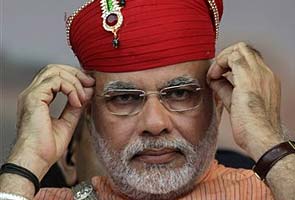
Washington, October 12: Without directly naming Gujarat Chief Minister Narendra Modi, a senior State Department official has said that US will evaluate any visa application based on merits and according to US laws.
"As you probably know, we don't get into questions of visa matters on any particular individual. That said, we of course will evaluate any visa application based on its merits and in accordance with US law, so I don't have anything further on that specifically," Assistant Secretary of State for Public Affairs Mike hammer told reporters at a news conference yesterday.
Hammer was responding to a question on Narendra Modi in the aftermath of Britain taking decision to end its decade long policy of no-contact with him, which it took after the communal riots in the Gujarat a decade ago.
"Is there a shift in the US policy towards Modi, or not yet?" Hammer was asked in view of the latest decision taken by the British Government.
The British decision to resume its contact with Modi was noted in several major American media outlets.
"Being a business-friendly government official in one of the world's fastest- growing economies can erase a lot of political baggage," The Washington Post said referring to the British decision, adding, that this may just be the beginning of an end to his international pariah status.
"I have asked the British High Commissioners in New Delhi to visit Gujarat and to meet the chief minister and other senior figures in the state," Hugo Swire, the new British minister in charge of India, said in a statement yesterday.
"This will allow us to discuss a wide range of issues of mutual interest and to explore opportunities for closer cooperation," the statement added.






Comments
Add new comment